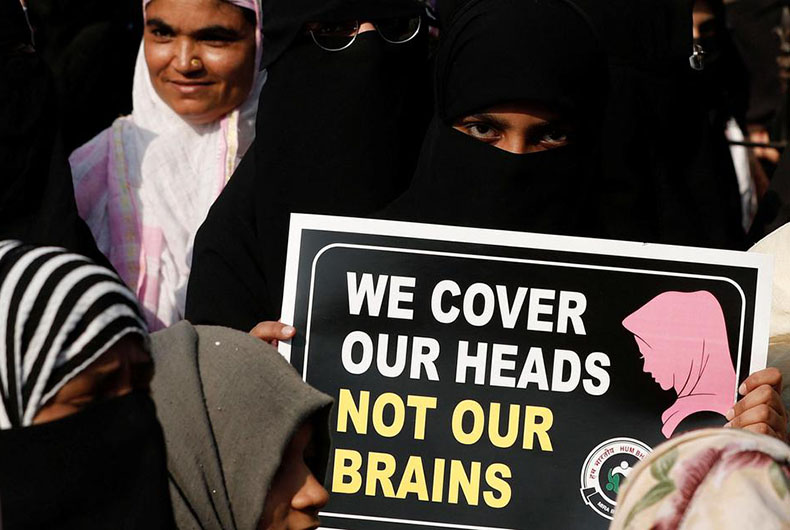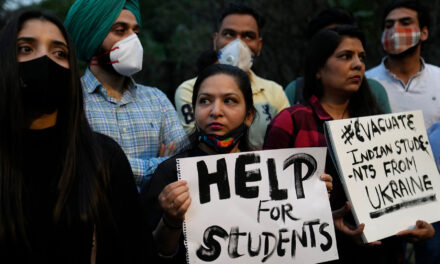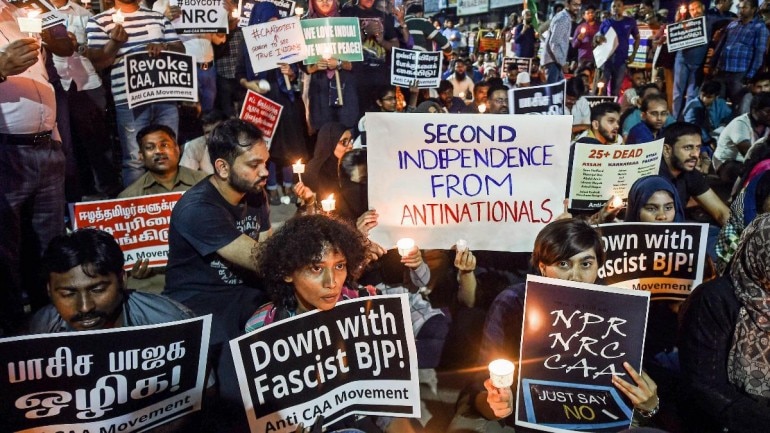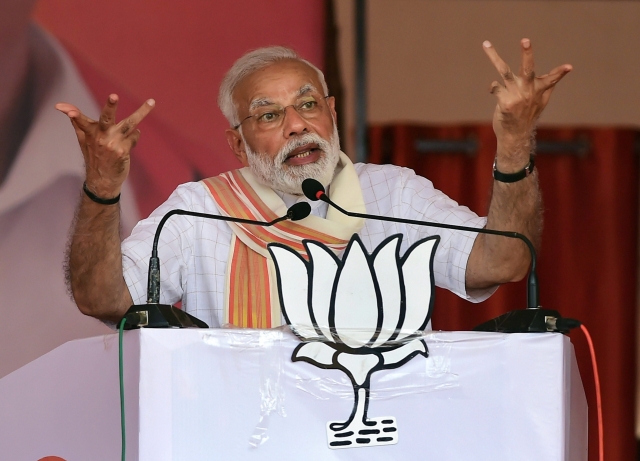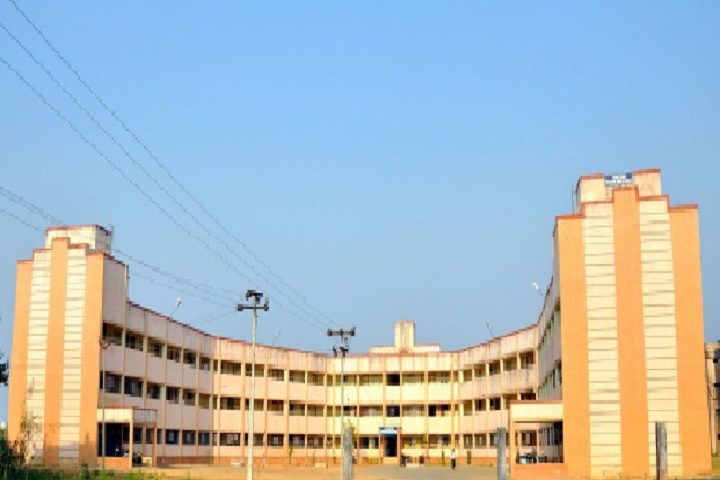The plea said the petitioner had approached the high court seeking redressal for the alleged violation of their fundamental rights against the state government order of February 5, 2022, issued under Sections 7 and 133 of the Karnataka Education Act, 1983.
But the high court has failed to note that the right to wear hijab comes under the ambit of the right to privacy under Article 21 of the Constitution of India.
It is submitted that the freedom of conscience forms a part of the right to privacy, it said.
The high court had maintained that the government has the power to issue impugned order dated February 5, 2022, and no case is made out for its invalidation.
By the said order, the Karnataka government had banned wearing clothes that disturb equality, integrity, and public order in schools and colleges, which the Muslim girls had challenged in the high court.
Challenging the February 5 order of the government, the petitioners had argued before the high court that wearing the Islamic headscarf was an innocent practice of faith and an essential religious practice and not a mere display of religious jingoism.
The petitioners had also contended that the restriction violated the freedom of expression under Article 19(1)(A) and Article 21 dealing with personal liberty.
The Supreme Court on Tuesday said it would set up a bench to hear a batch of pleas challenging the Karnataka High Court verdict refusing to lift the ban on hijab in educational institutions of the state, and added one of the judges was unwell leading to a delay.
A bench comprising Chief Justice N V Ramana and Justices Krishna Murari and Hima Kohli took note of the submissions of senior lawyer Meenakshi Arora, appearing for one of the appellants, that the appeals were filed way back in March against the high court order and they were yet to be listed for hearing.
“I will constitute a bench. One of the judges is not well,” the CJI said, adding “Wait. If the judges would have been alright, the matter would have come.”
The top court on July 13 had agreed to hear the petitions challenging the Karnataka High Court verdict on the issue.
It was then mentioned by lawyer Prashant Bhushan who had said that the girls are losing out on studies and have been facing difficulties.”
Prior to this, the appeals against the March 15 verdict of the high court, which had dismissed petitions seeking permission to wear hijab inside the classroom, were mentioned for urgent hearing on April 26 as well.
Several petitions have been filed in the apex court against the Karnataka High Court verdict holding that wearing of hijab is not a part of the essential religious practice which can be protected under Article 25 of the Constitution.
The high court had dismissed the petitions filed by a section of Muslim students from the Government Pre-University Girls College in Udupi, seeking permission to wear hijab inside the classroom.
The prescription of school uniform is only a reasonable restriction, constitutionally permissible which the students cannot object to, the high court had said.
In one of the pleas filed in the top court, the petitioner said the high court has erred in creating a dichotomy of freedom of religion and freedom of conscience wherein the court has inferred that those who follow a religion cannot have the right to conscience.

